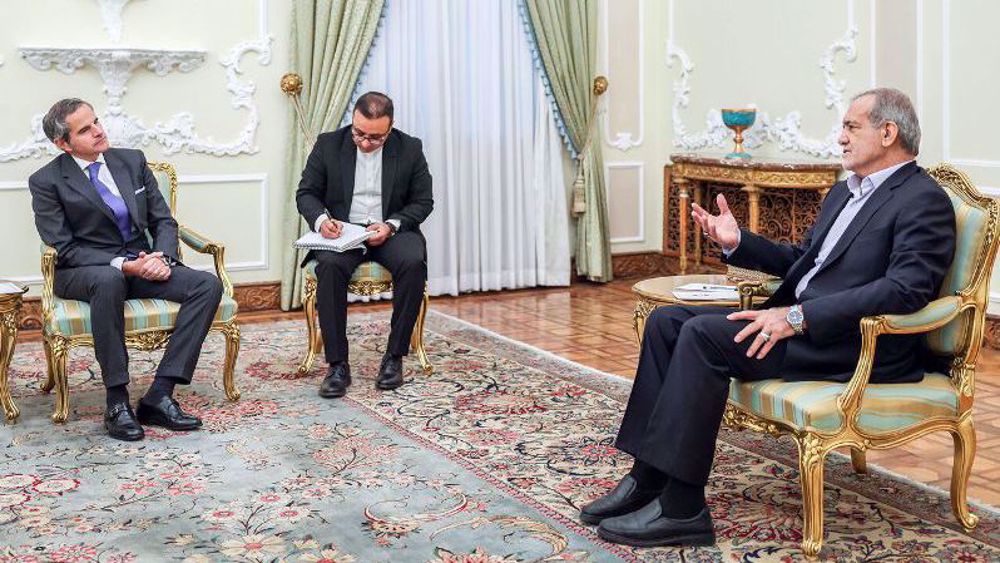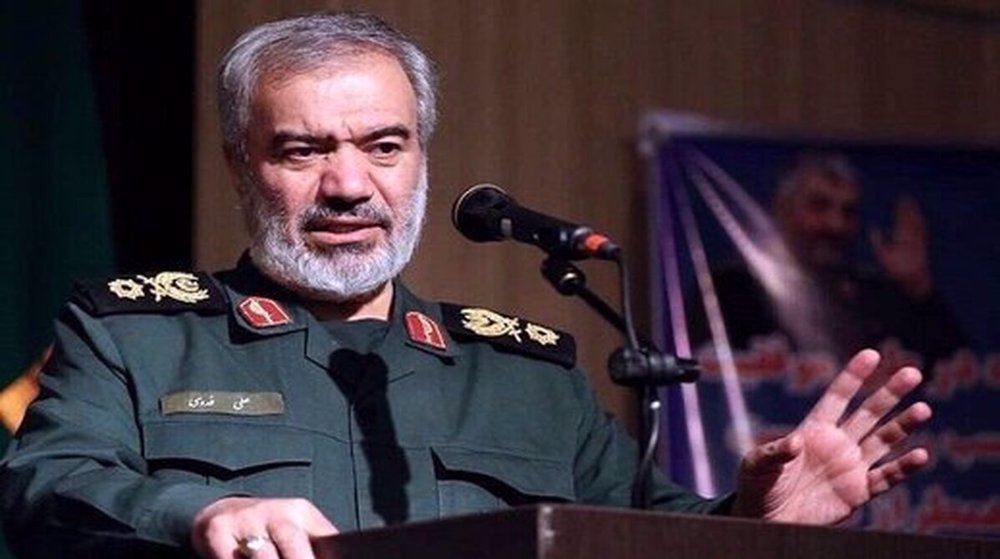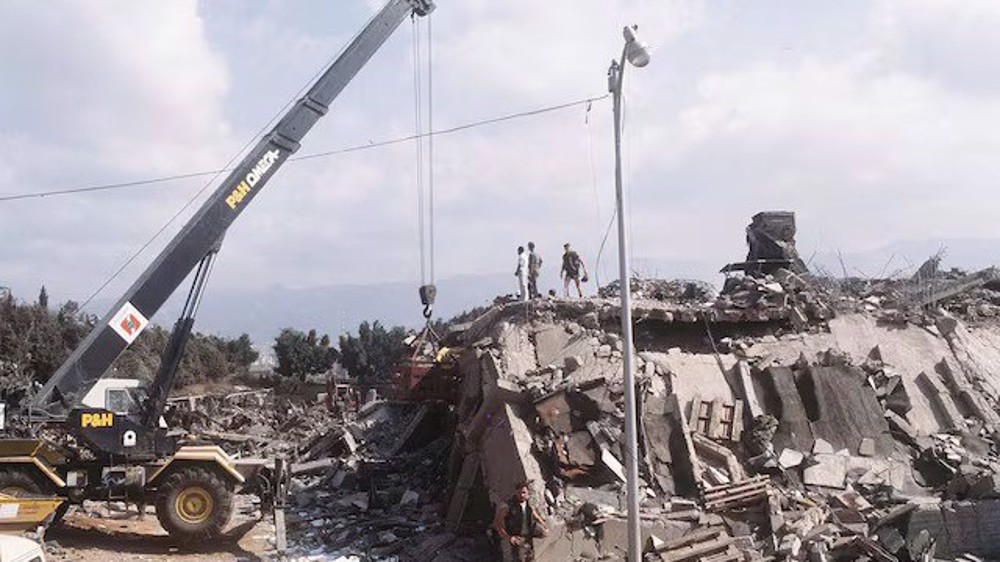Terrorism will spill beyond Mideast if not confronted: Rouhani
Iran’s President Hassan Rouhani has warned that if not confronted seriously, terrorism will spread from the Middle East region to the entire world.
In a meeting with Belgian Deputy Prime Minister and Minister of Foreign Affairs, Didier Reynders, in Tehran on Monday, Rouhani called for a collective fight against terrorism and violence.
“Today, violence and extremism have engulfed a large part of the Middle East region, and if these phenomena are not confronted seriously, the consequences of violence and terrorism will not definitely be confined to this region and will also spread to other areas in the world,” the Iranian president said.
He added that Iran has properly played its role in fighting terrorism and urged all countries to give priority to the campaign against the common threat of terror.
Rouhani emphasized the importance of strengthening cooperation between Iran and the European Union in the fight against terrorism and expressed hope that collective cooperation would restore stability and security to the region.
The Iranian president further pointed to “cordial and constructive” relations between Iran and Belgium and said the two countries should improve relations in different fields such as in economic, industrial, energy, scientific, academic, research and tourism sectors.
“The Islamic Republic of Iran, due to its very important geopolitical and geoeconomical position, can be a center to organize and expand economic ties of Belgium and the European Union with the entire region and a timely use of this opportunity will be beneficial to our nations,” Rouhani said.
The Belgian foreign minister, for his part, said his country attaches significance to serious and collective fight against terrorism.
Reynders added that Iran plays an effective role in settling regional problems and called for political solutions to the crises in Syria, Yemen, Iraq and Libya.
West threats hinder Iran-P5+1 ties
Secretary of Iran's Supreme National Security Council (SNSC) Ali Shamkhani said on Monday that the persistence of threat against Iran will hinder Tehran’s cooperation with the P5+1.

“Any unconstructive act or the persistence of threats and hostility [towards Iran] will prevent the expansion of cooperation and will lead to [Iran’s] revision of [its] policies,” Shamkhani said in a meeting with the Belgian foreign minister in Tehran.
He pointed to a nuclear agreement reached between Iran and the P5+1 group in mid-July and said that the proper and on-time fulfillment of the commitments by the P5+1 group, including the removal of all sanctions, will be a test to determine the six countries’ determination to bolster bilateral cooperation.
“The nuclear agreement between Iran and the P5+1 countries have created new opportunities for economic cooperation between Iran and Europe,” the SNSC secretary added.
Iran and the five permanent members of the UN Security Council – the United States, Britain, France, China and Russia – plus Germany finalized the text of an agreement on Tehran’s nuclear program, known as the Joint Comprehensive Plan of Action (JCPOA), in the Austrian capital, Vienna, on July 14.
Under the agreement, restrictions are put on Iran’s nuclear program in return for, among other things, the removal of sanctions imposed on Tehran by the US and the EU.
The Belgian foreign minister, for his part, said Brussels have always maintained relations with Tehran and expressed hope that the two sides would improve ties following the removal of sanctions.
ME woes must be solved through diplomacy
Iran’s Deputy Foreign Minister for Arab and African Affairs Hossein Amir-Abdollahian stressed the importance of solving Middle East woes through political and democratic approaches.
In a Monday meeting with Reynders, the Iranian official added that terrorism is the main and common problem of countries in the Middle East and Europe and called for the fight against the scourge.
The Belgian foreign minister, for his part, said regional problems would only be settled through a political mechanism.
He added that regional problems are rooted in terrorism and extremism and called on all countries in the region and across the world to jointly solve the crises in the Middle East.
The Belgian foreign minister arrived in Iran on Sunday at the head of a delegation for talks with the country’s senior officials.
VIDEO | Beirut’s southern suburbs targeted in 'heavy' Israeli strikes
Haaretz: Over 10,000 Israelis have migrated to Canada this year
VIDEO | Press TV's news headlines
Official: Iran to respond ‘decisively’ to any threat to its nuclear program
Nearly 70 Mossad-linked terrorists killed or captured in southeast Iran
What collapse of German coalition government means
Iran, Syria emphasize need to stop Israeli atrocities in Gaza, Lebanon
Clinton whisked away amid pro-Palestine protest at Belfast university










 This makes it easy to access the Press TV website
This makes it easy to access the Press TV website